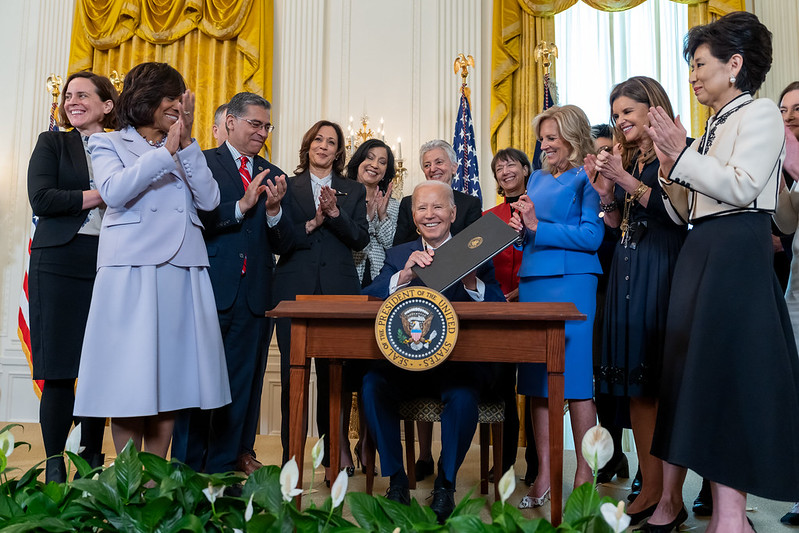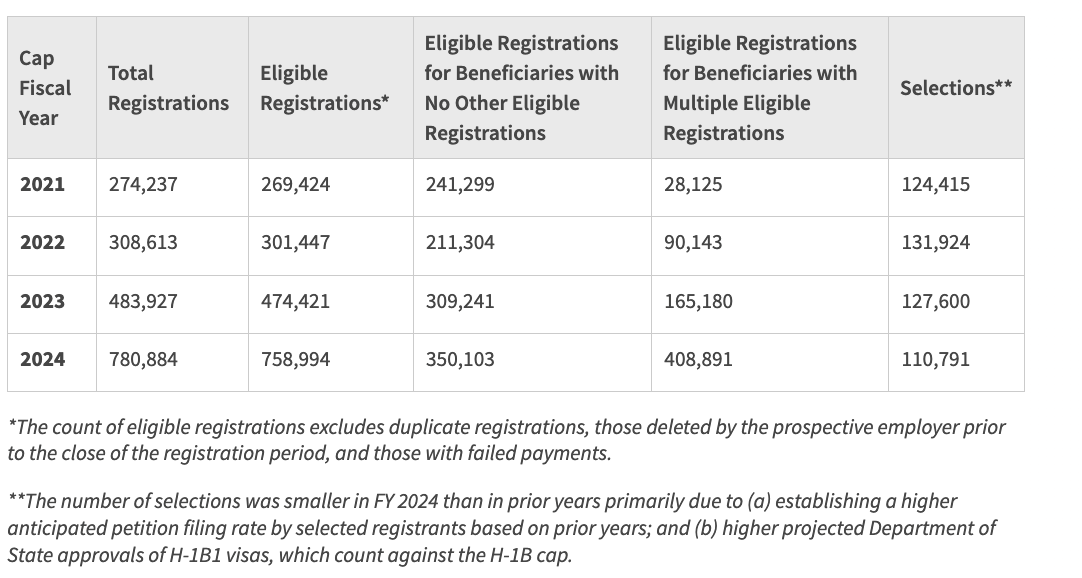 Last week the world of immigration experienced a seismic event. The President announced a historic executive action on immigration that will forever change the lives of undocumented spouses of U.S. citizens and streamline the nonimmigrant work visa process for DACA recipients and other individuals. In this blog post, we share with you everything we know about how the executive order will benefit U.S. college graduates seeking work visas.
Last week the world of immigration experienced a seismic event. The President announced a historic executive action on immigration that will forever change the lives of undocumented spouses of U.S. citizens and streamline the nonimmigrant work visa process for DACA recipients and other individuals. In this blog post, we share with you everything we know about how the executive order will benefit U.S. college graduates seeking work visas.
President Biden’s executive action was announced on the 12th anniversary of the Deferred Action for Childhood Arrivals (DACA) program, first enacted under the Obama administration. In addition to providing individuals protection from deportation, the order provides relief to potentially thousands of DACA recipients and other Dreamers who have earned academic degrees in the U.S. and are seeking employment opportunities in fields related to their course of study.
In doing so, the government will allow Dreamers to explore existing employment-based visa options such as H-1B, TN, L, O visas, etc.
Key Highlights
What the Executive Order does
- Work Visas: DACA recipients and other undocumented individuals could soon apply for expedited waivers and receive temporary work visas, granting them legal status to live and work in the United States without fear of deportation
- Eligibility: To be eligible for nonimmigrant work visas, individuals must have earned a degree at an accredited U.S. institution of higher education in the United States, and have an offer of employment from a U.S. employer in a field related to their course of study
- Path to Residency: There is potential for these temporary work visas to create a path to permanent residency through employment-based sponsorship options.
Why This Matters
Due to the contentious political climate, the U.S. congress has failed to bring about meaningful immigration reform that provides a legal pathway for Dreamers to remain in the United States and positively contribute to the U.S. economy, utilizing the skills and education they gained here in the United States.
For the first time ever, the government will direct the State Department (DOS) and Department of Homeland Security (DHS) to issue clarifying guidance making it possible for DACA recipients and other individuals without legal status to apply for expedited waivers and temporary work visas.
How will this process work?
While complete details have not yet been released, the government will facilitate expedited review of waivers of visa ineligibility by clarifying that it is within a Consular officer’s discretion to grant a waiver for such individuals, making it easier for them to apply for work visas.
212(d)(3) Waivers and the Ten-Year Unlawful Presence Bar
Under current immigration law, DACA recipients and other undocumented immigrants face additional barriers to obtaining temporary work visas due to their unlawful presence. Under the law, anyone who has accrued unlawful presence for a year or more is subject to a ten-year bar that is triggered upon departing the United States. As a result, the ten-year bar prevents an individual from re-entering the United States for at least ten-years after their departure. This has been a long-standing problem for undocumented immigrants because the bar is triggered even when an individual leaves to obtain a visa at a U.S. Consulate or Embassy abroad.
To overcome the ten-year bar, work visa applicants are forced to obtain a discretionary waiver from the U.S. Customs and Border Protection’s Admissibility Review Office. This waiver is known as the INA 212(d)(3) waiver and is designed to excuse certain grounds of inadmissibility including unlawful presence. An approved waiver removes the bar and allows such individuals to apply for temporary work visas at U.S. Consulates and Embassies. Only once the U.S. work visa is issued, can the individual re-enter the United States in nonimmigrant visa status and work for their employer pursuant to the terms of the employment visa.
 Visa Lawyer Blog
Visa Lawyer Blog











